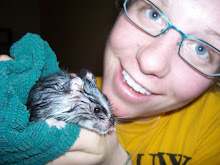Another incredible benefit of a farm lifestyle is of course the healthy (fresh, unprocessed, organic, local, non-
gmo, heritage variety, seasonal...) food!
Though I've never have never had particularly robust health, in the last eight years I've struggled with a variety of stubborn chronic conditions. Horse-related head injuries led to several years of migraines which, despite a staggering assortment of expensive treatments (thank you Mom and Dad for your unflinching generosity), relented to no cure other than time.
After an initial infection in college, I also became susceptible to frequent and frustrating relapses of mono, the virus springing into action any time stress or sickness weakened my system. I was eventually diagnosed with Chronic Fatigue Syndrome, a label I was less than excited to assume. As a syndrome with no known causes or cures, and thus a common association with feeble mental health, CFS humbled my lingering optimism with its dark outlook.
This summer I was incredibly lucky to happen upon (google upon?) a specialist with decades of experience and very good news - I simply had a a nasty case of GI candida. With this doctor's help, I've learned to re-balance my body with a completely new diet. No gluten, still no dairy, nothing processed, and - most daunting of all - nothing containing sugar or sweeteners of any kind. The persistent sweet tooth that had led me down a treacherous path of bi-weekly baking made those first few months a fierce battle of wills!
Thankfully, yeast overgrowth creates almost immediate and very noticeable negative feedback, helping me overcome temptations and fight my way into good health! Candida, the nasty bastard, produces and releases into the body (via "leaky gut syndrome" which is caused by the fungal hyphae physically tearing apart the cells of the intestinal walls) at least 75 known toxins, including immune suppressants and neurotoxins. In fact, the neurotoxins released by candida have been linked in some studies to nervous system disorders including seizures, autism, and ADHD. Some of the substances candida employs to weaken it's host immune resistance include: canditoxin (causes unsettled behavior, paralisis, and death), tartaric acid (causes fatigue and cognitive problems), arabinose (hypoglycemia and protein dysfunction), acetaldehyde (damages brain structure and function), ethanol, and opiate mimics.
I've been asked in many different ways and three times by one very skeptical individual, "So is this a real condition? I mean, do other people have it?" Though I do fabricate the majority of my medical complaints (come on - how else am I gonna get any attention around here?), I'm pretty convinced this one is for reals. Candida overgrowth remains weirdly unknown in conventional medicine, although I believe it probably has a widespread and devastating effect on many people eating conventional western diets (sugar and gluten and dairy, oh my!), and probably on society at large as well (health care costs, grumpy and exhausted citizens, and hey, has anyone else noticed the unexplained uptick in autism/depression/attention deficit?). Most women, and certainly most doctors, understand the concept of microbial balance in the female reproductive system, but somehow few are able to translate the idea to the intestinal tract where the same bacteria and fungi are competing for nutrients. And just as is the case with your nether regions, this delicate balancing act might be a great reason not to put strange and unnatural things in there (like processed food, or you know, Listerine douches - shudder).
Anyway, after seven months, I feel pretty darn awesome for the first time in a long time and am so grateful to have my spirits undampened by fungal chemicals! My immune system is still recovering, and the candida is always lurking (the specialist told me a human has enough surface area in the GI tract to cover a foot ball field, so there's lots of space for renegade candida colonies to hide out), so I'm not out of the woods yet. Intense cravings pop up here and there, sometimes for days or weeks at a time, and I try to quiet them with alternative foods that won't feed the candida. I scarfed a few handfuls of uncooked steel cut oats the other day when overcome with a sugar/gluten craving, and it somehow helped just a little. I've started using seltzer water as an oral distraction, and had pretty good luck with that. For some reason I crave peanuts almost all the time, but try to avoid them as they're thought to contain lots of mould. I suppose my candida are trying to trick me into ingesting some fresh troops for their campaign. Acidic foods like corn and coffee are also hard to avoid because they are so damn delicious and not as obviously associated with imbalance as sugar or wheat. I get frustrated and whiny, balanced so precariously between sickness and health, but how lucky am I to have a body that is telling me how to feed it at 25 when most Americans won't hear that message until cancer or diabetes tells them much too late?
And, to cheer you up a bit, a sow in the snow:



